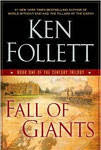I read Mark Twain’s LETTERS FROM THE EARTH when I taught Honors American Literature. Far too controversial for the high school curriculum, I told interested readers about this work published posthumously, because Twain never expected it to be published.
I was amused by the sacred cows Twain satirized in this work. His defense of atheism, the testament to man’s frailties, controversial, although humorous, was censored for some time. The same students I taught the following year in World Literature who had read LETTERS FROM THE EARTH on their own recognized in our study of Voltaire’s CANDIDE a similar kind of irreverent humor. I could not, in a million years, have included Twain's text in my high school class syllabus.
Twain’s text begins with a a description of “the Creator . . . , the Presence . . . , the Divine One,” a colossal figure, sitting on his throne in Heaven, “lifting His hand” magically creating suns, and thus light, a common theme in the book of Genesis.
The three archangels, Gabriel, Michael, and Satan engage in a dialogue about the Creator’s “Law of Nature . . . Law of God” and are stymied by the word animals. “What is [sic] animals? ” Satan inquires of Gabriel.
The three archangels, Gabriel, Michael, and Satan engage in a dialogue about the Creator’s “Law of Nature . . . Law of God” and are stymied by the word animals. “What is [sic] animals? ” Satan inquires of Gabriel.
“Three centuries later, celestial time . . . 100 million years in earthly time,” a Messenger shows specimen of animals and the Creator explains that they are an experiment in “morals and conduct.” Satan, the banished archangel, in eight letters to the archangels Michael and Gabriel, realizes that these animals devour each other, are killers and murderers as he realizes the theme of survival of the fittest.
Satan questions “The Law of God” as to the creation of Man. The Divine One describes the qualities of the nature of man as “courage, cowardice, ferocity, gentleness, fairness, justice, cunning, treachery, magnanimity, cruelty, malice, malignity, lust, mercy, pity, purity, selfishness, sweetness, honor, love, hate, baseness, nobility, loyalty, falsity, veracity, untruthfulness.”
Satan’s letters include ridiculing Man who would never sing in public invent a Heaven, “where everybody sings and plays a harp,” and the foolishness of their beliefs such an amazing Heaven with no sex, when they risk losing Heaven because of their desire to have sex at all costs. He says that man created modesty where “European ladies cover their ankles and expose their breasts.” Noah, he claims, saved flies but left countless humans to die. He blames the Father for allowing Man to wage war, and in the same breath, create the Beatitudes.
“Papers of the Adam Family” contains “An Extract from Methuselah’s Diary,” a discourse between Adam and Eve, and other blatant jibes at prophets, professors, and politicians.
The chapter, titled “Letters to the Earth,” is a tongue in cheek letter delivered to a coal dealer in Buffalo, New York, from “the Office of the Recording Angel, Department of Petitions.” The Angel lists the coal dealer’s selfish and ridiculous petitions to the Divine One, affirming the dealer’s “good deeds” such as donating $15 to a needy widow with three children when his profit for the month was $45,000.
In “The Damned Human Race,” among Twain’s topics are his poking fun at scientists and geologists’ revelations on the history of man, the intelligence of God, man’s persecutions of heretics, religions, women, savages, the sport of hunting animals, and proposes that Darwin’s “Ascent of Man” should be titled “Descent of Man.”
Religious commentary is not the only subject of this text, although it is perhaps the most humorous. One of the funniest subjects is Twain’s "Manual on Manners," at a funeral, at a fire, such as the appropriate order in which to rescue people from a burning building [mother-in-laws last], and the rules for visiting cards [obviously a long gone tradition of etiquette]. Chapters on Spelling, “A Tramp Abroad: the French and the Comanches,” and James Fenimore Cooper’s prose style, compose a number of other chapters.
Twain, a well traveled writer presents a hilarious, irreverent, pessimistic view of man that attests to his satirical talent. His witty introspections will entertain you and make you laugh out loud.



















